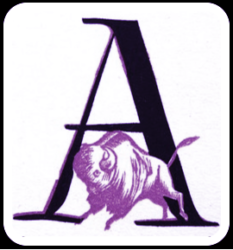The following letter was apparently lost in the mails until just recently. Many friends who read this little blog from time to time have asked about the story of the windmill that Maxwell began in his first letter. I am happy to report that I am now able to post Maxwell’s follow-up.
The Oaks
Coombebury Heath
2 May 2010
Dear Liam,
Please forgive me for breaking off my last letter at a crucial moment. I had quite run out of the allotted time for writing and was running woefully late for dinner with my extended family. My aunt Dora prepared her customary May Day meal, this year with a decidedly Italian twist. I say twist because aside from the lamb lasagna and chianti, the food gave one more of the sense of a smörgåsbord than festività. There was some sort of cold potato dish that my uncle Jack said was straight out of Germany, custard with blackcurrant dressing, and pâté with cheese and crusty bread. The food and conversation made my stomach acid kick up, but I sat aloof as long as they might let me alone.
No one has less curiosity about the things that make us passionate than the members of our extended family. Uncle Jack asked me the same questions about what I did for a living that he has asked for the last twenty years. I realized that if my occupation was something conventional (and perhaps lucrative) like doctor, solicitor, or greengrocer he would understand, but being a Health Education Assessor is, to him, just another way of saying ‘unemployed bafoon.’ While I tried to explain my work for the one hundred and fiftieth time, I felt I was in a lecture theatre surrounded by the silent, disapproving faces of cousins, aunts, uncles, nieces, and nephews as I confirmed their deepest suspicions of my being a layabout. Things went from bad to worse when the conversation turned to football. My opinion was asked for, and when the open secret that I am a City supporter was again aired, one of my nephews rained down a torrent of abuse, the like of which I have never been subjected to in my friendship circles, where I am generally respected.
Dorcas and I left my aunt’s home feeling a wreck, went to bed and slept late. This, however, only served to confirm that indeed I am a layabout after all. Having breakfasted, I thought of America, and I wanted to sit down straight away to write you.
Oh dear, I have not gotten to the point again, have I? Well, I must right that wrong.
When last I wrote I was telling you about the librarian, Mrs Mosswell. The issue has to do with a local landmark–a windmill. This particular windmill–and frankly I don’t know the difference between the various types of mills–was built in the seventeenth century. It hasn’t been used as a mill for at least a century and a half. I believe most of that time it was used a some kind of pigeon coop. Anyway, the family of greengrocers that owned it allowed it to fall into disrepair, and it has really been in a deplorable state. But for the fact that it is somewhat off the beaten path it would have been demolished long ago. The sails and machinery are completely missing and the crumbling sandstone shell houses all manner of rubbish generously mixed with pigeon poop.
Well now, along comes Virginia Mosswell. Widowed after six month of marriage, Virginia ably oversees the local archives insofar as she is a master organizer of books and space. She is especially capable in the space category. Our library pile is a ghastly Victorian structure of blond brick and plaster filigree. The leader of the local gentry at the time it was built conspired with the Vicar to hound some poor architect into blithering submission and the result was this monstrosity, replete with gargoyles (yes, gargoyles!) that one would swear are the inspiration for the flying monkeys in The Wizard of Oz. Still, I am thankful it is what it is. It sure beats a structure of Mussolini modernism with grey concrete walls and gun slits for windows (seems like you complained of such a building at your old university, Bluemont Hall or something you called it?). Ugly Gilded Age structure or no, the library building has deucedly small and strangely configured space and it takes a veritable wizard to figure out how to cram in zillions of books and still have adequate study space for local scholars. Enter Virginia, who was born to claim shelf space for dusty volumes. Much of her talent is due to being a formidable woman. Both tall and wide, she is the very model of efficiency. She is never seen in trousers at all, but typically wears broom skirts of varying patterns with dark floral blouses. Unlike the stereotypical librarian she neither wears glasses nor piles uncut hair on top of her head in a bun. Her short black hair is worn in spikes and the front strands are often colored in ochre hues that are typically favored by stern German women, although I once saw her briefly sporting a bluish lock that rather reminded me of Lois Lane’s hair in the Superman comic strips. Her voice is high, nasally, and confident. She orders people around so methodically that one gets the impression that she is merely fulfilling a herding instinct, like a human border collie. Unfortunately, ever since she ascended to the post of head librarian upon the death of Mrs Kinstroe, who was far more librarianesque, and had ruled the ziggurat of books for several generations, Virginia has assumed that she had somehow assimilated the sum total of the knowledge of all those books. No fool, she decided that the way to make a name for herself was to win the younger generations and through them to bend the entire community to her will. Junior Reading clubs were her method and she made the local windmill her issue. She announced that the clubs would begin reading books on a new theme last autumn. No more Madeline or Dr. Suess. No, the tykes would be reading “green” books on saving the earth and harnessing the vast stores of non fossil-fuel potential proffered by a fragile planet. Imagine the eyes of little munchkins agog with the possibilities of saving the earth and passive solar panels and such. And she sent children home with little packets of seeds and hemp fibre sacks loaded with propaganda about composting and all that rot (sorry). She would brook no opposition. Any adult who would not agree to this agenda was a blighter or, failing that, cold-hearted, and she piled out an argumetntum ad misericordium or two for good measure. After all, this was a children’s cause and what kind of monster would oppose children, especially those who had gathered this awareness from the local library where tolerance and good sense were dispensed on people of good will? Apparently, her real objective was the windmill.
Virginia began to show her cards when she made the book, Windmills are Our Friends, by S. R. Sinhumadhani the object of her singular praise. Supplementing this was a book some parents thought slightly above the club members’ level entitled, Blow Bravely, Blow Hard, by Ms. Bayez Cornflower who argued that all power plants were the product of greedy capitalists who withheld the knowledge of wind power, because it might solve our energy problems cleanly, but without profit to them. For a few adults the last straw was Mommy, Can’t We Do Potty Training With Wind? by Skark. I trust I do not need to elaborate on this last selection. When the children were discussing the Potty book, Virginia asked the question, “Have any of you seen a real windmill before?” The kids for some reason did not pick up on this being a rhetorical question. Ignoring the young hands flung up all over the place, our librarian continued, “Here is a picture of a windmill that happily worked in our community for many years, but as you can see the poor windmill is sick. Can you see what is wrong with it?…Yes! It is broken dear children, and it needs our help to fix it!” Tears, weeping and sadness gripped the tots for their poor, sick Friend that only wants to spin in the wind and save the earth. We must save our Friend! And mummy and daddy must help us!
And no one was more surprised at what happened next than mummy and daddy!
Virginia’s programme was premeditated to the smallest detail. At the end of the reading session, packed into each munchkin’s rucksack was a clever pop-up book that, when opened, revealed a handsome paper windmill. Virginia had apparently affixed a private label to this book, because the title read, “Please Save Our Windmill.” Also included each child’s horde were an ample supply of broadsides with the same title as the pop-up book screaming as a headline, and a letter from Virginia announcing a petition campaign designed to get the attention of the council. The latter informed mummy and daddy that on the Saturday next there would be a concerted petition campaign designed to coincide with the annual fête, which would afford the hobby issue the widest possible exposure to the folk of the surrounding countryside. Volunteers were required to work a Save the Windmill Table, and a muster of roving Windmill harassers was needed to hound signatures around the fringes of the fête. The letter noted that the latter would be outfitted with reflective vests, although no one has yet determined why this extreme measure should be necessary unless they are being asked to pursue their quarry into lorry traffic.
At any rate, I shall have to leave off the report of what happened at the fête and what was the town reaction in my next. I trust that you and Precious are well and that you are looking forward to Hope’s imminent wedding. Someday soon I hope that Dorcas and I might make the pilgrimage to the Great American Midwest for a visit. I am anxious to eat authentic takkos (sic) as long as they are not overly spicy (remember my stomach acid issues).
I remain, as always, your friend,
Maxwell Fleet
P.S. I am a little confused by your game of baseball as it is, but in your last you mention a team called the “Royals,” of which you are a supporter. Your explanation of the origin of the team’s name is very intriguing. You mention that it comes from a local agricultural and stock show called the American Royal. But surely this is one of these oxymorons of which you Americans are so fond. Did not our ancestors fight a war that that put asunder forever from Americans all further associations with royalty?

